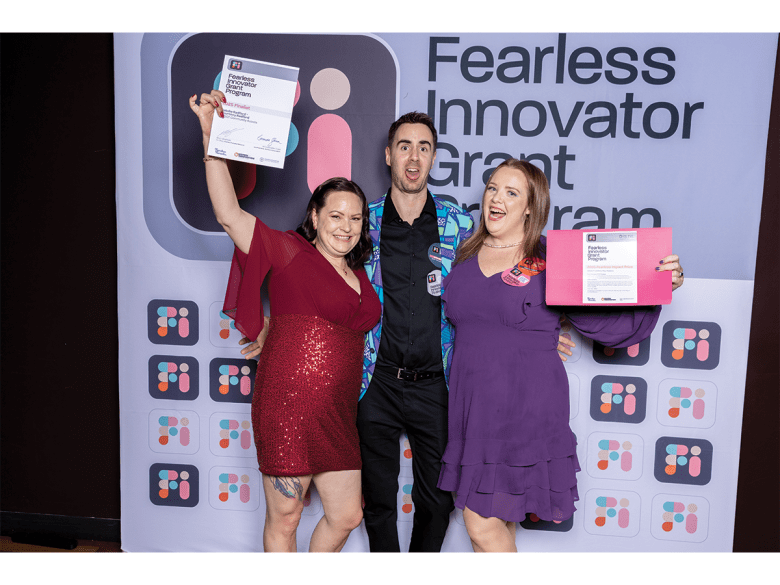South Australian start-up SKOOT Community Access is changing what’s possible for people who need safe and reliable transport.
Founded by Courtney, Josh, and Natalie Radford in 2024, SKOOT was born from frustration with a broken system that left too many people stranded, isolated, or forced into taxis that couldn’t meet their needs.
Since launching, SKOOT has completed over 6000 trips across South Australia, from hospital discharges and medical appointments to social outings, study, and work.
Saving money with SKOOT
It has removed two-hour minimum bookings to help users, including NDIS participants, save money. Co-founder Natalie Radford said she’s particularly proud of this saving.
“What makes me proudest is not the nearly $2 million in revenue or the awards we’ve received, but the $300,000 we’ve saved participants and taxpayers this year alone. That’s money staying in people’s plans to fund more goals, more access, and more independence,” she said.
Behind the numbers are real people: the woman who can now get to hydrotherapy twice a week, the young man who doesn’t miss job interviews, the family who no longer spend hours worrying if their daughter will be left waiting after a hospital stay.
More than just transport
SKOOT’s commitment to community has already been recognised in major awards, including the Fearless Innovator Grant Program and the Women in Innovation Awards. But for Natalie, the real prize is impact.
“SKOOT is more than a transport company – we’re a movement for inclusion. Our team of 120 people is proving every day that business can be values-led, innovative, and impact-driven,” she said.
SKOOT will soon launch an app designed to make access even simpler, letting people book, track and plan journeys in real time. For the disability community, the company says this means less waiting, less uncertainty, and more control, giving people back dignity, choice and the freedom to live life on their terms.

